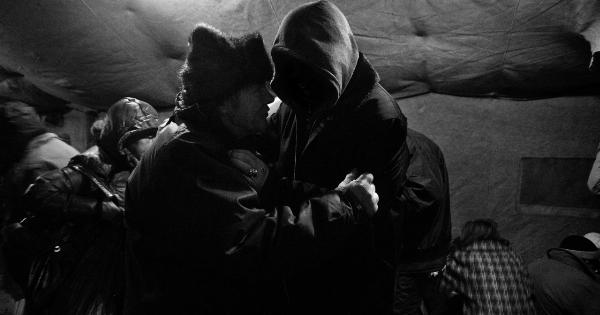Depression is a common mental health disorder that affects millions of people worldwide. It is often characterized by feelings of sadness, hopelessness, and lack of interest or pleasure in activities.
However, depression can also manifest in various deceptive symptoms, making it difficult to diagnose and treat. In this article, we will explore some of the deceptive symptoms of depression and what you should look out for.
1. Irritability and Anger
While depression is commonly associated with feelings of sadness or emptiness, it can often manifest as irritability or anger. People with depression may feel easily frustrated, agitated, or annoyed with themselves and others.
They may lash out verbally or physically without warning, which can lead to strained relationships and social isolation. However, because irritability and anger are not usually associated with depression, these symptoms can be overlooked or misinterpreted.
2. Physical Symptoms
Depression can also lead to physical symptoms, such as headaches, back pain, and digestive issues. These symptoms can be a result of the body’s response to chronic stress and emotional distress.
However, many people with depression may not recognize these physical symptoms as related to their mental health disorder. As a result, they may seek medical attention for their physical symptoms rather than their underlying depression.
3. Fatigue and Sleep Problems
Depression can affect energy levels and interfere with sleep, leading to fatigue and sleep problems. People with depression may have trouble falling or staying asleep, which can compound their feelings of sadness and hopelessness.
However, because fatigue and sleep problems are not unique to depression, they may not be recognized as symptoms of the disorder.
4. Reduced Appetite or Overeating
Changes in appetite, such as reduced appetite or overeating, can also be deceptive symptoms of depression. Some people with depression may lose interest in food and have no appetite, leading to weight loss.
Others may turn to food as a form of comfort, leading to weight gain. However, changes in appetite can also be attributed to other factors, such as stress or hormonal fluctuations, which may make it difficult to recognize as a symptom of depression.
5. Cognitive Impairment
Depression can also affect cognitive function, leading to problems with memory, concentration, and decision-making.
People with depression may have a hard time completing tasks, remembering appointments, or making decisions, which can affect their work or social life. However, because cognitive impairment can be attributed to other factors, such as aging or medication side effects, it may be overlooked as a symptom of depression.
6. Substance Abuse
Substance abuse is often associated with depression, as people with depression may turn to drugs or alcohol as a way to cope with their feelings of sadness or hopelessness. However, substance abuse can also be a deceptive symptom of depression.
Some people may develop substance abuse problems without realizing they have depression, or they may use substance abuse as a way to mask their depression symptoms.
7. Social Withdrawal
Depression can lead to social withdrawal, as people with depression may feel unmotivated to engage with others or may fear rejection or judgment.
However, social withdrawal can also be attributed to shyness, introversion, or other social anxiety disorders, making it difficult to recognize as a symptom of depression.
8. Perfectionism
Perfectionism is another deceptive symptom of depression that can often go unnoticed. People with depression may set unrealistic standards for themselves, leading to feelings of inadequacy or failure.
However, because perfectionism can also be attributed to personality traits or other anxiety disorders, it may be overlooked as a symptom of depression.
9. Self-Injury or Suicidal Thoughts
Self-injury or suicidal thoughts are among the most serious and deceptive symptoms of depression. People with depression may feel overwhelmed by their feelings of hopelessness, leading them to engage in self-injury or have thoughts of suicide.
However, because self-injury and suicidal thoughts can be stigmatized or ignored, it is essential to recognize them as symptoms of depression and seek help immediately.
10. Masking Symptoms
Finally, a deceptive symptom of depression is masking symptoms. Some people with depression may try to hide or suppress their symptoms, fearing judgment or rejection from others.
They may put on a brave face or act as if everything is fine, even when they are struggling with depression. However, masking symptoms can make it difficult to recognize depression and lead to delayed diagnosis and treatment.
Conclusion
Depression can manifest in various deceptive symptoms, making it difficult to diagnose and treat. If you or someone you know is experiencing any of the above symptoms, it is crucial to seek help immediately and speak with a mental health professional.
Depression is a treatable disorder, and with proper support and treatment, people can recover and lead fulfilling lives.




























